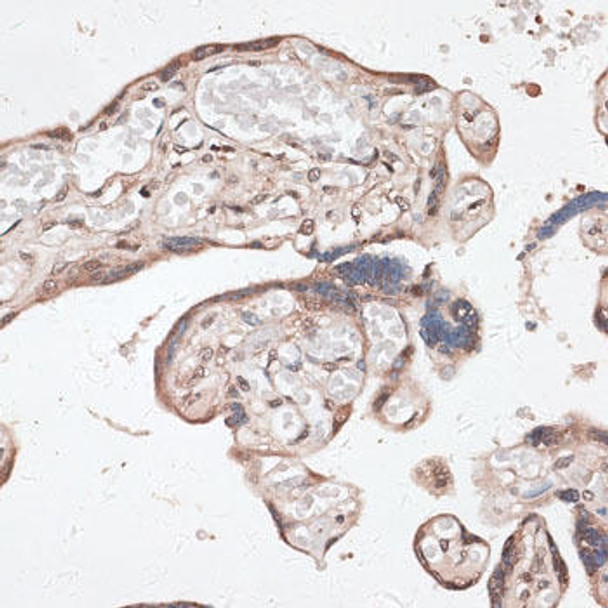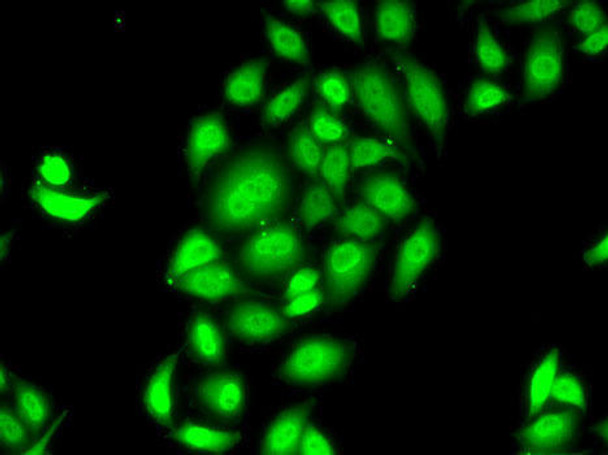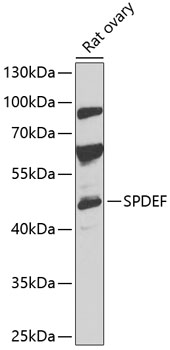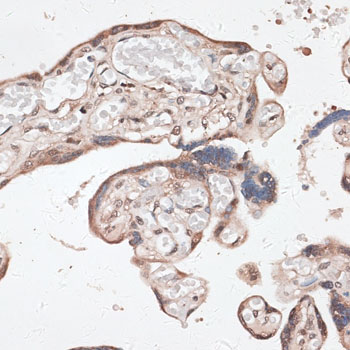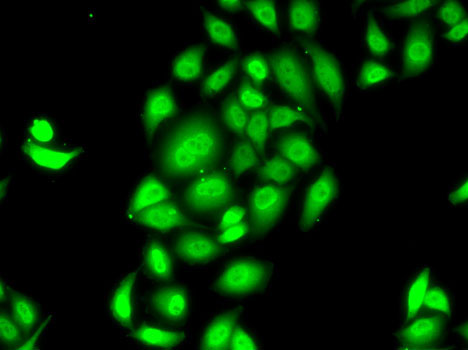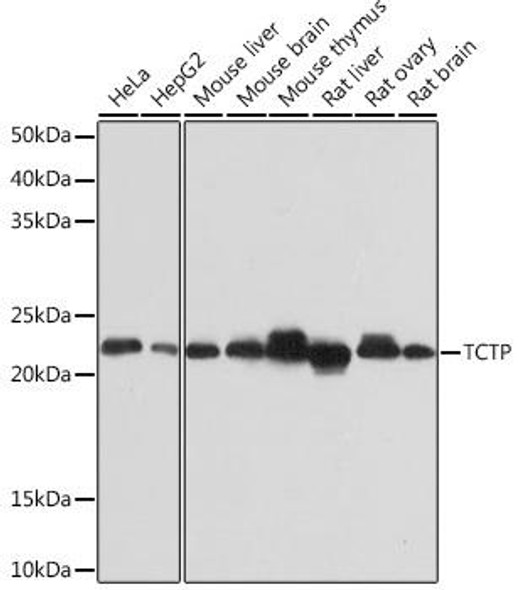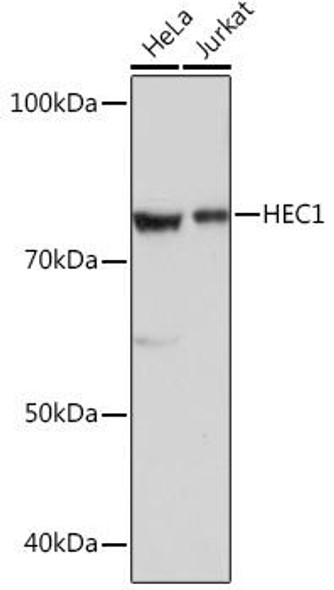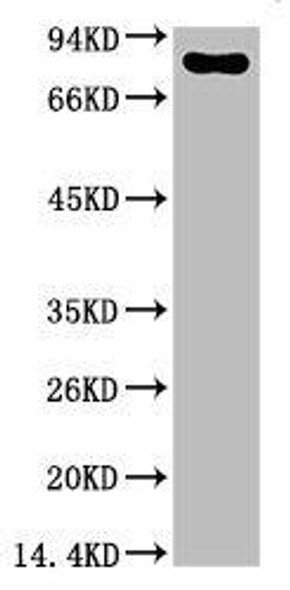Description
Anti-SPDEF Antibody (CAB14114)
The SPDEF Polyclonal Antibody (CAB14114) is a valuable tool for researchers studying SPDEF, a transcription factor involved in the regulation of epithelial cell differentiation. This antibody is produced in rabbits and shows high reactivity towards human samples, making it suitable for a variety of research applications, including Western blot analysis. By targeting the SPDEF protein, this antibody allows for the precise detection and analysis of SPDEF expression in different cell types, making it an ideal choice for studies in molecular biology and cancer research.SPDEF is a key player in controlling the differentiation of epithelial cells, particularly in the respiratory and gastrointestinal tracts.
Dysregulation of SPDEF expression has been linked to various diseases, including cancer and inflammatory disorders. By studying the function of SPDEF, researchers can gain insights into the mechanisms underlying these diseases and potentially identify new therapeutic targets for intervention.Overall, the SPDEF Polyclonal Antibody (CAB14114) is a reliable tool for investigating the role of SPDEF in cellular differentiation processes and disease pathogenesis. Its specificity and sensitivity make it a valuable asset for researchers aiming to advance our understanding of SPDEF biology and its implications in human health.
| Antibody Name: | Anti-SPDEF Antibody |
| Antibody SKU: | CAB14114 |
| Antibody Size: | 20uL, 50uL, 100uL |
| Application: | WB IHC IF |
| Reactivity: | Human, Rat |
| Host Species: | Rabbit |
| Immunogen: | Recombinant fusion protein containing a sequence corresponding to amino acids 1-335 of human SPDEF (NP_036523.1). |
| Application: | WB IHC IF |
| Recommended Dilution: | WB 1:500 - 1:1000 IHC 1:50 - 1:200 IF 1:50 - 1:100 |
| Reactivity: | Human, Rat |
| Positive Samples: | Rat ovary |
| Immunogen: | Recombinant fusion protein containing a sequence corresponding to amino acids 1-335 of human SPDEF (NP_036523.1). |
| Purification Method: | Affinity purification |
| Storage Buffer: | Store at -20'C. Avoid freeze / thaw cycles. Buffer: PBS with 0.02% sodium azide, 50% glycerol, pH7.3. |
| Isotype: | IgG |
| Sequence: | MGSA SPGL SSVS PSHL LLPP DTVS RTGL EKAA AGAV GLER RDWS PSPP ATPE QGLS AFYL SYFD MLYP EDSS WAAK APGA SSRE EPPE EPEQ CPVI DSQA PAGS LDLV PGGL TLEE HSLE QVQS MVVG EVLK DIET ACKL LNIT ADPM DWSP SNVQ KWLL WTEH QYRL PPMG KAFQ ELAG KELC AMSE EQFR QRSP LGGD VLHA HLDI WKSA AWMK ERTS PGAI HYCA STSE ESWT DSEV DSSC SGQP IHLW QFLK ELLL KPHS YGRF IRWL NKEK GIFK IEDS AQVA RLWG IRKN RPAM NYDK LSRS IRQY YKKG IIRK PDIS QRLV YQFV HPI |
| Gene ID: | 25803 |
| Uniprot: | O95238 |
| Cellular Location: | Nucleus |
| Calculated MW: | 35kDa/37kDa |
| Observed MW: | 50kDa |
| Synonyms: | SPDEF, PDEF, bA375E1.3 |
| Background: | The protein encoded by this gene belongs to the ETS family of transcription factors. It is highly expressed in the prostate epithelial cells, and functions as an androgen-independent transactivator of prostate-specific antigen (PSA) promoter. Higher expression of this protein has also been reported in brain, breast, lung and ovarian tumors, compared to the corresponding normal tissues, and it shows better tumor-association than other cancer-associated molecules, making it a more suitable target for developing specific cancer therapies. Alternatively spliced transcript variants encoding different isoforms have been found for this gene. |
| UniProt Protein Function: | SPDEF: May function as an androgen-independent transactivator of the prostate-specific antigen (PSA) promoter. Binds to 5'-GGAT- 3' DNA sequences. May play a role in the regulation of the prostate gland and/or prostate cancer development. Acts as a transcriptional activator for SERPINB5 promoter. Belongs to the ETS family. |
| UniProt Protein Details: | Protein type:Transcription factor; Motility/polarity/chemotaxis; Nuclear receptor co-regulator; DNA-binding Chromosomal Location of Human Ortholog: 6p21.3 Cellular Component: nucleus Molecular Function:sequence-specific DNA binding Biological Process: transcription from RNA polymerase II promoter; positive regulation of cell fate commitment; positive regulation of apoptosis; multicellular organismal development; positive regulation of transcription from RNA polymerase II promoter; negative regulation of transcription from RNA polymerase II promoter; cell differentiation; negative regulation of cell fate commitment |
| NCBI Summary: | The protein encoded by this gene belongs to the ETS family of transcription factors. It is highly expressed in the prostate epithelial cells, and functions as an androgen-independent transactivator of prostate-specific antigen (PSA) promoter. Higher expression of this protein has also been reported in brain, breast, lung and ovarian tumors, compared to the corresponding normal tissues, and it shows better tumor-association than other cancer-associated molecules, making it a more suitable target for developing specific cancer therapies. Alternatively spliced transcript variants encoding different isoforms have been found for this gene. [provided by RefSeq, Nov 2011] |
| UniProt Code: | O95238 |
| NCBI GenInfo Identifier: | 74762123 |
| NCBI Gene ID: | 25803 |
| NCBI Accession: | O95238.1 |
| UniProt Secondary Accession: | O95238,B4DWH8, F5H778, |
| UniProt Related Accession: | O95238 |
| Molecular Weight: | 335 |
| NCBI Full Name: | SAM pointed domain-containing Ets transcription factor |
| NCBI Synonym Full Names: | SAM pointed domain containing ETS transcription factor |
| NCBI Official Symbol: | SPDEF |
| NCBI Official Synonym Symbols: | PDEF; bA375E1.3 |
| NCBI Protein Information: | SAM pointed domain-containing Ets transcription factor; prostate-specific Ets; prostate-derived Ets factor; prostate epithelium-specific Ets transcription factor |
| UniProt Protein Name: | SAM pointed domain-containing Ets transcription factor |
| UniProt Synonym Protein Names: | Prostate epithelium-specific Ets transcription factor; Prostate-specific Ets; Prostate-derived Ets factor |
| Protein Family: | SAM pointed domain-containing Ets transcription factor |
| UniProt Gene Name: | SPDEF |
| UniProt Entry Name: | SPDEF_HUMAN |

